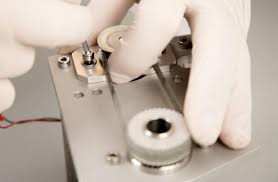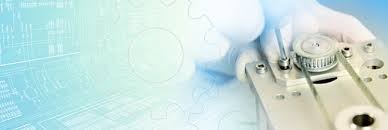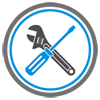Nexus-IE
Nexus IE Ltd – Prototype and small batch equipment build specialists
Nexus Intelligent Engineering excels in the assembly of specialist electro-mechanical equipment, helping our customers to get new products to market and increase volumes from first batches for field trials or pilot scale production and provide continued support for equipment in operation.
-
How Nexus IE Helped Ojee Golf Get Ahead of Their Launch
19 December 2017Here at Nexus IE, customer experience is invaluable to us and is central to our business. Through our flexible product manufacturing and support service, we aim to provide assembly, supply chain management and support services, working in partnership with those businesses who want to take their products to market. Products assembled, delivered quickly and efficiently without comprising on quality.
Don’t just take our word for it. In this post, Matt Hulbert MD of Ojee Golf shares his experience of working with Nexus IE, explaining the impact our services have had on his business.
A Little Background on Matt and Ojee Golf
Ojee Golf was a crowd-funded project that was so successful it received 170 pre-orders for the device across 20 different countries within its short campaign. It was created by product designer Matt Hulbert and his golfing father Paul. Together they identified the gap in the market within the golfing industry. At the time there were countless training aids to help golfers with their swing but a perfect swing is only 10% of the picture. To play the ball to a certain place in a certain way the golfer needs a clear mental picture (50%) and the right set up (40%). So the father and son team set about developing a product that would assist golfers to set up their shot seamlessly and the Talon was born.
Matt, can you share with us what problems Ojee Golf came across with product development and what impact did that have on Ojee Golf?
The original Talon was essentially the same core product that we have today with the Talon Mk2. When we sent the Talon out to our Indiegogo backers we were sure to reach out to them to get feedback on how the product was received. Some users were having issues around the way in which the product attached to the grip-butt of the club and I knew that we needed to re-engineer the product to eliminate that issue before we opened ourselves up to the wider market.
Having to go back to the drawing board certainly took the wind out of our sales, we were adamant that we wanted to deliver the best possible product and it was a tough decision to pause production, especially when so many of our customers were having a blast using the product. We took the opportunity to address any and all suggestions that came up from our user group and couldn’t be happier with the product we have today.
The TALON Mk2 uses clever technology to give live feedback on the four critical components in your stance: the club face angle, the shaft angle, the spine angle and most critically, the relationship between the two (henceforth known as the Ojee Angle).
Talon has already received a 5-star user review from Golf Magic and has been exposed to and used on the LPGA, the LET and the European Tour and received extremely positive feedback.
-
In-house Vs. Outsourcing Manufacturing
19 December 2017Deciding where to set up your manufacturing is key to the structure of your supply chain. Every business is unique and making a decision that is right for you and the stage of your company is vital. In this post, we will explore the arguments for manufacturing in-house or outsourcing so that you can make an informed decision that is right for your business.
The advantages of In-house Manufacturing
When you manufacture in-house, you are in control of the process from start to finish. This gives you the flexibility to adapt as and when you see fit. This is especially useful when you want to respond to the market quickly and make a consumer-led change to your product because you don’t have to go through another company or rely on anyone else.In-house manufacturing has the potential to have a quick and seamless process between design, engineering, product development and production. This is because it is simpler in-house and easier to control. The supply chain manager can access all of the departments first hand and make immediate contact whenever required. This can speed the process of manufacturing up from the prototype onwards. This speed can make it easier to customise products for customers that a want bespoke service. With less ‘middle men’ any specific instructions are easier to communicate
The Advantages of Outsourcing Manufacturing
Labour costs are always the biggest cost of any manufacturing process. When you outsource your manufacturing you haven’t got to take on the responsibility and costs involved in hiring the staff required to do the job properly. The company that you outsource too will hire and look after the staff, leaving you with a lower labour cost bill and a lot less obligation. Some managers don’t always initially account to include roles such as equipment technicians, handlers, shipping and receiving staff and quality assurance experts. Even a relatively small operation physically needs people to allow it to run smoothly and this can be a detrimental drain on the business accounts.There are other savings to be made when outsourcing manufacturing especially in terms of your general overheads. It is an expensive process to have a manufacturing facility and foot all the bills. These include gas, water, electricity, maintenance or equipment, licences and insurance.
Now although we touched on increased flexibility with in-house manufacturing, it is worth pointing out on this side of the argument, that with the right company and relationship, more flexibility can actually be achieved through outsourcing.
This is because the contractor has more capacity for production so it is easier and quicker for them to respond to changes in the market demand. If an increase of production is required suddenly, a contractor doesn’t have to invest in more machinery, resources or staff because they already have what they need.
Some contractors specialise in the bespoke and can easily adapt for customisations and alterations to products. What is important is that if you do want to outsource, you do your research and ascertain which company is best able to meet your ever-changing needs.
Outsourcing any aspect of your business is more than just a logistical or economic decision. When you make a decision to outsource elements of your business that are not your area of expertise, you actually give your business the space it needs to grow. You and those around you are able to focus on what they are good at, developing products and services and building relationships up with customers that lead to sales. Trying to do everything yourself when it is not your skill can take your attention from the core of the business and reduce motivation. Outsourcing can be a liberating and profitable experience for any business.








